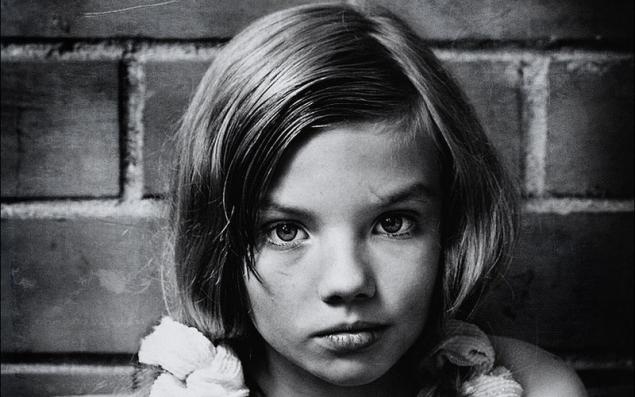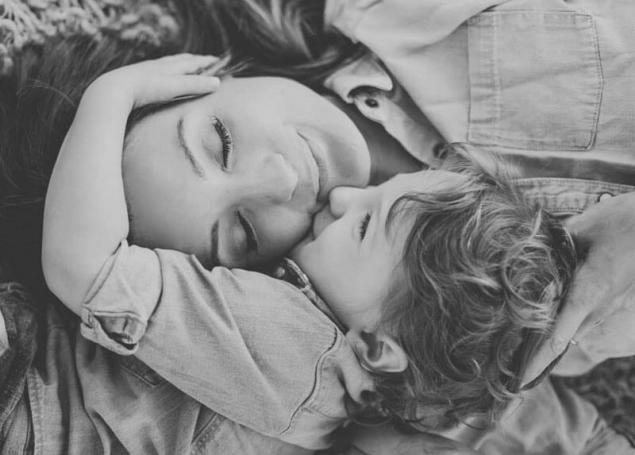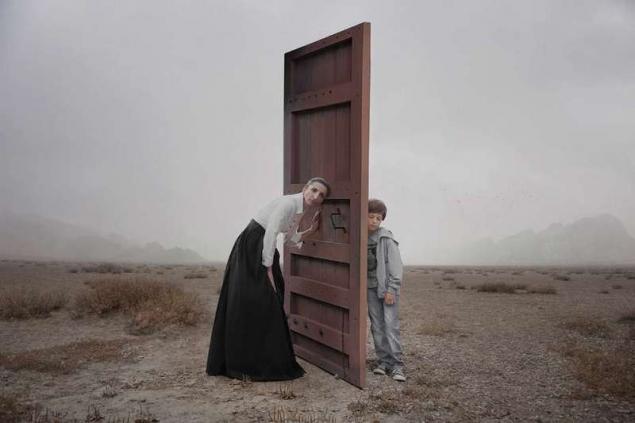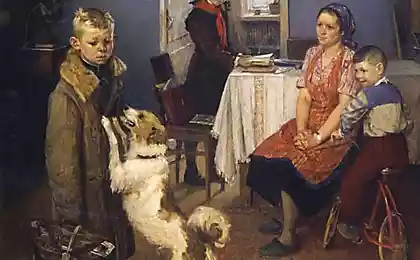534
The conditional and the unconditional love of parents
The story of one client: “I was active and apparently a naughty child. Parents swore were periodically taken the belt, but I still continued to indulge, to play with her friends. Parents wanted to see me home baby, and I am strongly opposed. At some point, the mother began to have conversations that if I start to listen to her, then they'd have me in an orphanage. What a daughter does not need them.

I think seriously that I have these conversations are not perceived as was in vain.
When I was six years old, we with my friends played in a nearby yard. I returned home much later than the allowed time. Very afraid of the reaction of the mother, but that night she did not fix anything. Only glared at me and said, "I told you so."
I thought had passed, but two days later, my mother dressed me, Packed my bag and we went to some institution. It turned out that this is a children's orphanage. Mom said with me she can not cope, and that leaves me here, so I "thought" about their behavior.
I stayed in the orphanage for a week. I remember every day. Children living in the orphanage was not a problem, but I distinctly remember the fear and panic that came over me. I felt lonely and unwanted, abandoned. For me it was just a shock.
The mother came a week later and asked what I was thinking. I burst into tears and begged her to take me there. Promised that I would be obedient and not going to upset her. In General, begged forgiveness, I returned home. Since then, I became docile, passive and sad. I was afraid though something to upset my mom because then she'd disown me. Since then I have lived all my life with the feeling that nobody wants me and fear that I will throw.
Many years later I learned that mother was not going to leave me in the orphanage. She agreed with his friend leaving me for a week at the orphanage for educational purposes. Hoped that this week I will take over your mind and become obedient. She had no idea how this week has affected my life..."
For a child the love of parents, especially a mother's love means more than just love. For a child it is a chance to live!
If you read books on parenting, there is always the red line is the idea of "unconditional love" — love for the child without any conditions. Installation: "whatever you did — I still love you!" This gives the child permission to live and this forms the basic well-being ", I+".

When raising a child, as and promotion and punishment of acts of parental love. The so-called conditional love. The essence of this mechanism consists in the following:
Thus, parents use love as a positive reinforcement, and dislike as negative reinforcement. This is the mechanism of contingent reinforcement on a personal level. For a child this means that when it behaves "correctly", his parents in this moment of love and therefore he can consider himself "good". If he's acting "wrong", then his parents show that "such a child" they do not like, and consequently, the child will feel "bad".
The consequences of conditional love parents?
Primarily to ensure that the child develops a basic installation: be what I am I parents do not need "I am". But if I'm behaving "correctly", then parents would love me "Me+ under certain conditions". And if I'm wrong, then I'm not worthy of love "I — because he did not fulfill the conditions for receiving love."
How it works
Parents want to be proud of the child, his development, particularly marks in school. If the child is four, or God forbid three, it is not necessary to beat the child, or yelling at him. Mom can just stop talking with the child. To say something like "this is not my father and you were waiting for," and then to show the "coldness" towards the child. He, in turn, will make the conclusion that in order for my mom to love me, I have to get straight as. No matter, like the subject or not. Since forming the student syndrome.
Parents have emotional problems, restraint of emotions. Usually for such people, the displays of emotion in other people is extremely uncomfortable, so parents do not approve of the child's play. Noise, self-indulgence. They can simply show their displeasure, so that the child will understand that when he shows a spontaneity, it's irritating parents. Thus, the probability that he will make the decision to be "correct" a child that is obedient, holding the emotions.

Parents are very concerned about "what other people will think". So I try on people to behave "correctly" to one bad thought. A child who does not know what is "right" tells in kindergarten as mom and dad were fighting. And it is then passed to parents, who have long worked for the child on the subject, "now what people think about us". Or just the mother tells the child, look, people are looking at us what they think. And all this with irritation. In the end Hello, shyness!
Parental love is one of the main tools by which parents shape self-image and the nature of the child. Most parents sincerely believe in the correctness and necessity of this approach. Though actually it's easier for the parents. Easier to manage child. It is easier to form Autonomous mechanisms that will govern the behavior of heirs, without the participation of the parents.
The vast majority of parents believe that conditional love, this is the real parental love. And then wonder why the child is perceived quite differently, more like what he didn't feel love from their parents, feel unnecessary.
In my opinion, parents should understand how the child perceives their relationship and their impact. Because parents often tend to make "better", and the child forms the problems which he will have to live the rest of my life. And to change your life, you will have to get rid of many mechanisms formed under the influence of parental conditional love.published
Author: Boris Litvak
Source: cross-club.ru/samoocenka/27-formirovanie-samoocenki-uslovnaya-i-bezuslovnaya-lyubov.html

I think seriously that I have these conversations are not perceived as was in vain.
When I was six years old, we with my friends played in a nearby yard. I returned home much later than the allowed time. Very afraid of the reaction of the mother, but that night she did not fix anything. Only glared at me and said, "I told you so."
I thought had passed, but two days later, my mother dressed me, Packed my bag and we went to some institution. It turned out that this is a children's orphanage. Mom said with me she can not cope, and that leaves me here, so I "thought" about their behavior.
I stayed in the orphanage for a week. I remember every day. Children living in the orphanage was not a problem, but I distinctly remember the fear and panic that came over me. I felt lonely and unwanted, abandoned. For me it was just a shock.
The mother came a week later and asked what I was thinking. I burst into tears and begged her to take me there. Promised that I would be obedient and not going to upset her. In General, begged forgiveness, I returned home. Since then, I became docile, passive and sad. I was afraid though something to upset my mom because then she'd disown me. Since then I have lived all my life with the feeling that nobody wants me and fear that I will throw.
Many years later I learned that mother was not going to leave me in the orphanage. She agreed with his friend leaving me for a week at the orphanage for educational purposes. Hoped that this week I will take over your mind and become obedient. She had no idea how this week has affected my life..."
For a child the love of parents, especially a mother's love means more than just love. For a child it is a chance to live!
If you read books on parenting, there is always the red line is the idea of "unconditional love" — love for the child without any conditions. Installation: "whatever you did — I still love you!" This gives the child permission to live and this forms the basic well-being ", I+".

When raising a child, as and promotion and punishment of acts of parental love. The so-called conditional love. The essence of this mechanism consists in the following:
- I love you is if you do what I like, what I think is right and useful. For a child this means that when he follows the desires of the parents, he gets the love of parents. Therefore, permission to live and consider themselves "good".
- If a child does something the parents consider wrong, they demonstrate their dislike for him. Reject the child, punished, strongly demonstrate that he is "bad". Not the love of parents perceived by the child as a failure to live. What if it's bad, don't love him, he will not care and it will lead to tragic consequences for him.
Thus, parents use love as a positive reinforcement, and dislike as negative reinforcement. This is the mechanism of contingent reinforcement on a personal level. For a child this means that when it behaves "correctly", his parents in this moment of love and therefore he can consider himself "good". If he's acting "wrong", then his parents show that "such a child" they do not like, and consequently, the child will feel "bad".
The consequences of conditional love parents?
Primarily to ensure that the child develops a basic installation: be what I am I parents do not need "I am". But if I'm behaving "correctly", then parents would love me "Me+ under certain conditions". And if I'm wrong, then I'm not worthy of love "I — because he did not fulfill the conditions for receiving love."
How it works
Parents want to be proud of the child, his development, particularly marks in school. If the child is four, or God forbid three, it is not necessary to beat the child, or yelling at him. Mom can just stop talking with the child. To say something like "this is not my father and you were waiting for," and then to show the "coldness" towards the child. He, in turn, will make the conclusion that in order for my mom to love me, I have to get straight as. No matter, like the subject or not. Since forming the student syndrome.
Parents have emotional problems, restraint of emotions. Usually for such people, the displays of emotion in other people is extremely uncomfortable, so parents do not approve of the child's play. Noise, self-indulgence. They can simply show their displeasure, so that the child will understand that when he shows a spontaneity, it's irritating parents. Thus, the probability that he will make the decision to be "correct" a child that is obedient, holding the emotions.

Parents are very concerned about "what other people will think". So I try on people to behave "correctly" to one bad thought. A child who does not know what is "right" tells in kindergarten as mom and dad were fighting. And it is then passed to parents, who have long worked for the child on the subject, "now what people think about us". Or just the mother tells the child, look, people are looking at us what they think. And all this with irritation. In the end Hello, shyness!
Parental love is one of the main tools by which parents shape self-image and the nature of the child. Most parents sincerely believe in the correctness and necessity of this approach. Though actually it's easier for the parents. Easier to manage child. It is easier to form Autonomous mechanisms that will govern the behavior of heirs, without the participation of the parents.
The vast majority of parents believe that conditional love, this is the real parental love. And then wonder why the child is perceived quite differently, more like what he didn't feel love from their parents, feel unnecessary.
In my opinion, parents should understand how the child perceives their relationship and their impact. Because parents often tend to make "better", and the child forms the problems which he will have to live the rest of my life. And to change your life, you will have to get rid of many mechanisms formed under the influence of parental conditional love.published
Author: Boris Litvak
Source: cross-club.ru/samoocenka/27-formirovanie-samoocenki-uslovnaya-i-bezuslovnaya-lyubov.html























